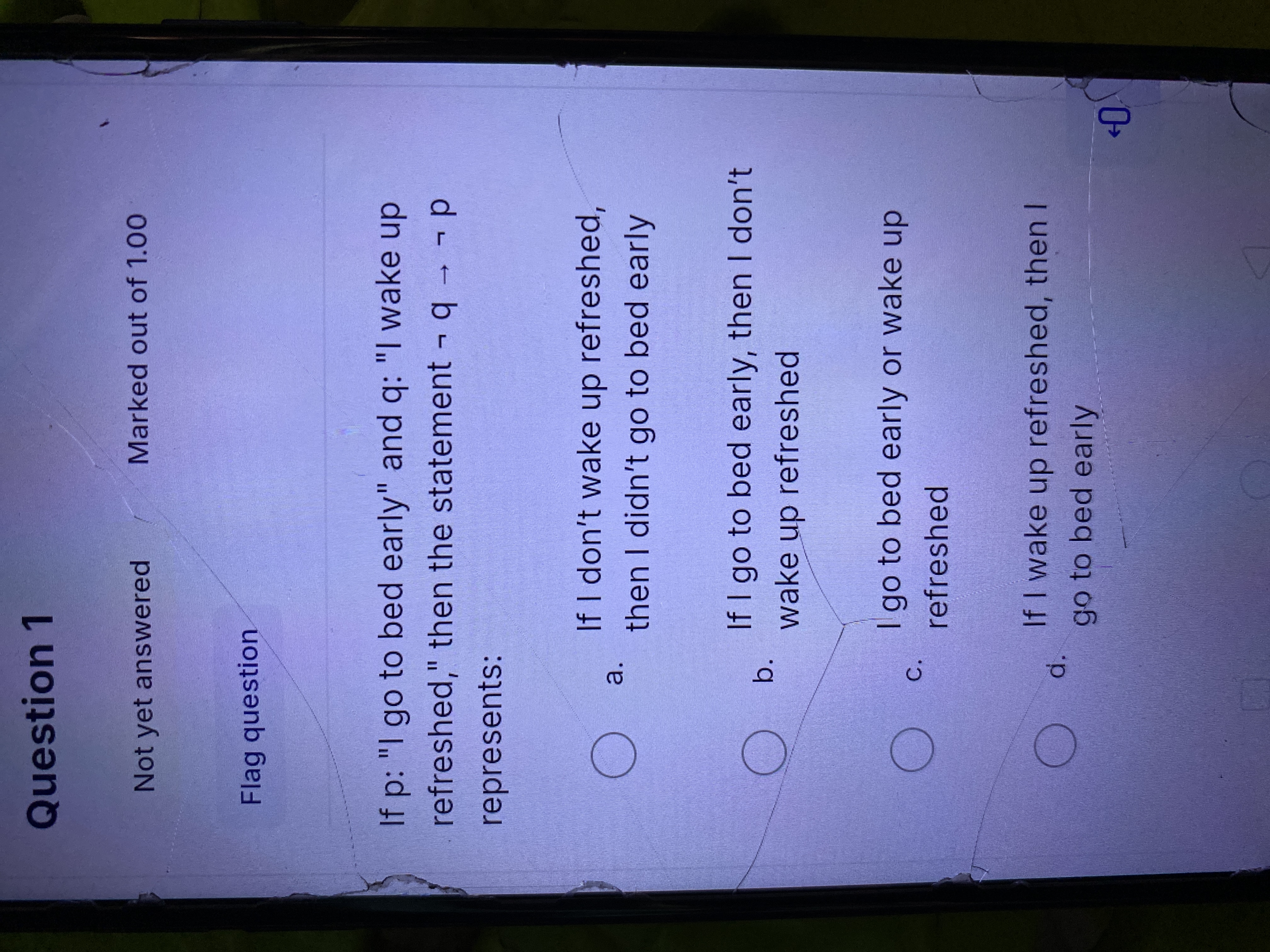If p: 'I go to bed early' and q: 'I wake up refreshed,' then the statement ¬q → ¬p represents:

Understand the Problem
The question is asking for the interpretation of a logical statement involving two variables: going to bed early and waking up refreshed. This involves understanding logical operations like negation and implication to determine what the statement ¬q → ¬p means in this context.
Answer
If I don't wake up refreshed, then I didn't go to bed early.
The statement ¬q → ¬p represents: 'If I don't wake up refreshed, then I didn't go to bed early'.
Answer for screen readers
The statement ¬q → ¬p represents: 'If I don't wake up refreshed, then I didn't go to bed early'.
More Information
The statement ¬q → ¬p is the contrapositive of the statement p → q, which is logically equivalent.
Tips
A common mistake is confusing the contrapositive with the converse or inverse. Remember, the contrapositive switches and negates both conditions.
Sources
AI-generated content may contain errors. Please verify critical information